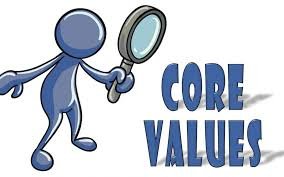Today’s workplace is more interconnected than ever, with diverse functions, teams, and goals intertwined in intricate ways. This complexity can lead to miscommunication, misalignment, and inefficiency if not managed well. For managers, navigating this web of interconnected challenges requires simplifying processes, promoting cross-functional understanding, and fostering systems thinking.
What Complexity Can Look Like
Complexity often appears in workplaces with many associated systems, teams, and goals that require coordination. For instance, a global company might manage cross-functional projects involving multiple regions and specialized departments, each with different priorities and processes. Technology integration can also add complexity, with new tools requiring seamless communication between platforms to avoid disruptions. Internally, complexity might mean intricate workflows or extensive collaboration between departments, which can lead to misunderstandings and delays. Employees may feel overwhelmed by navigating these dependencies, yet the environment also encourages systems thinking and collaborative problem-solving, helping teams build stronger connections and approach challenges with a broader perspective.
Let’s explore strategies for managing complexity
· Simplifying Processes and Reducing Bottlenecks. In complex environments, inefficiencies can quickly compound. By streamlining workflows and cutting down on unnecessary approvals or steps, managers make it easier for teams to focus on what truly matters. Simplicity in processes translates to more clarity, reducing the cognitive load on employees.
· Encouraging Systems Thinking. Complexity is often rooted in the relationship between different parts of a system. Training employees to think in terms of systems helps them understand how their actions impact others across the organization. This broader perspective fosters more strategic thinking and enhances decision-making.
· Cross-Functional Collaboration. Complexity often involves multiple teams working together. Regular cross-functional collaboration breaks down silos, helping teams understand different priorities and work styles. This approach improves problem-solving and builds camaraderie, enhancing team resilience when facing intricate challenges.
· Run Experiments. While experience can be valuable in addressing challenges, relying on it exclusively can limit effective solutions to complex problems. Just as raising a child requires adapting to each new situation, complex issues often demand a fresh approach rather than repeating past successes. By designing thoughtful, "safe-to-fail" experiments, leaders can test new strategies without significant risk, gaining insights into what works and what does not. Embracing a mindset open to experimentation, without attachment to a specific outcome, allows for innovative solutions that are more aligned with the complexity of the current landscape.
Complexity does not have to lead to confusion. By promoting simplified processes, fostering systems thinking, experimenting, and enhancing collaboration, managers can turn complex work environments into opportunities for growth and innovation, empowering teams to navigate challenges with greater confidence and cohesion.
Quote of the day. "The greatest ideas are the simplest." – William Golding
Question. How can your team simplify processes and focus on the bigger picture to navigate complexity more effectively? Comment and share below; we’d love to hear from you!
The next blog (3/6) in this series will focus on dealing with ambiguity in the workplace.
As a leadership development and executive coach, I work with leaders to sharpen their leadership skills and better navigate VUCA conditions, contact me to explore this topic further.
How do you navigate complexity?




















